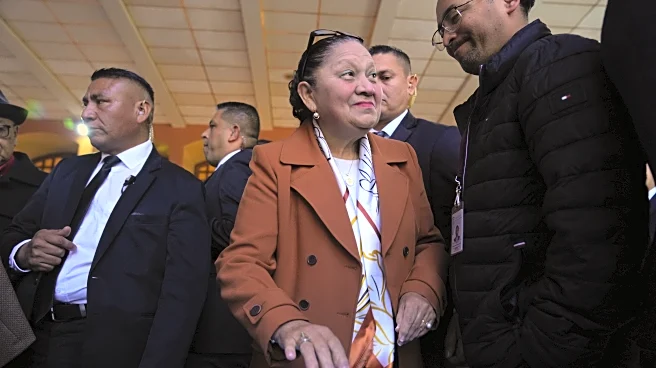What's Happening?
Andre McKechnie, a convicted murderer serving a life sentence in Australia, is contesting a ban on the consumption of Vegemite in Victoria's prisons. The ban, in place since 2006, is justified by state
authorities who claim the condiment could be used to disguise contraband or brew alcohol. McKechnie argues that the prohibition infringes on his cultural rights as an Australian, as Vegemite is considered a national symbol. The case highlights the ongoing debate over cultural rights and prison regulations, with McKechnie seeking to overturn the ban through legal channels.
Why It's Important?
The case underscores the tension between cultural rights and security measures within correctional facilities. Vegemite, a staple in Australian culture, represents more than just a food item; it is a symbol of national identity. McKechnie's legal challenge could set a precedent for how cultural rights are balanced against institutional regulations. If successful, the case may influence policy changes in prison systems, potentially affecting how cultural items are managed in correctional environments. This could have broader implications for cultural rights advocacy and prison reform efforts.
What's Next?
The legal proceedings will determine whether the ban on Vegemite in Victoria's prisons will be lifted. The outcome could prompt a review of similar bans in other regions, potentially leading to policy changes that accommodate cultural rights within prison systems. Stakeholders, including cultural rights advocates and prison authorities, are likely to closely monitor the case. The decision may also spark discussions on the balance between cultural expression and security in correctional facilities, influencing future legal and policy frameworks.
Beyond the Headlines
The case raises questions about the role of cultural symbols in identity and the extent to which individuals can access these symbols in restrictive environments. It also highlights the challenges of maintaining security while respecting cultural diversity within institutional settings. The legal battle may prompt broader discussions on cultural rights and their recognition in various societal contexts, potentially influencing cultural policy and advocacy efforts beyond the prison system.










![Cortisol vs. Melatonin: The Biological War Happening Inside Every Night-Shift Worker]](https://glance-mob.glance-cdn.com/public/cardpress/binge-magazine-card-generation/spaces/US/en/discover-daily/images/ppid_7byehtbd-image-177082393426031154.webp)